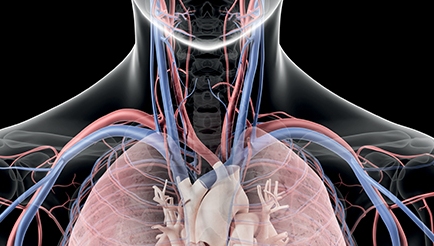Institution news
The report, Biomedical engineering: advancing UK healthcare, highlights how the delivery of healthcare is becoming increasingly dependent on technology and how the role of the biomedical engineer will become even more vital, both in the UK and overseas.
The report makes four key recommendations, which are:
- Every NHS acute trust should have a designated Chief Biomedical Engineer.
- A single, dedicated funding programme for biomedical engineering research should be established in UK Research Councils.
- Industrial and taxation policy should promote long-term investment in biomedical engineering to encourage domestic development and manufacturing.
- International consensus should be pursued for global standards, a common device regulatory and approvals regime, and harmonisation of patent legislation in medical devices. Named UK leads should be agreed for these policy roles.
The report was compiled on behalf of the Institution by:
- Dr Patrick Finlay, Managing Director of MediMaton Ltd and Chairman, Biomedical Engineering Association, Institution of Mechanical Engineers,
- Prof Anthony Bull, Head of Department of Bioengineering at Imperial College, and
- Prof Tony Unsworth, Chair of Engineering at the University of Durham.

According to Dr Finlay, lead author of the report: “Technology is leading to huge advances in healthcare, but this technology is dependent on the work of biomedical engineers who are inadequately recognised and in short supply in hospitals.”
“The recommendations of the report call for strategic changes that will boost UK competitiveness in biomedical engineering as well as supporting patients and carers,” he said.
“Our proposal that every NHS Acute Trust should have a Chief Biomedical Engineer will enable the huge technology portfolio of modern hospitals to be properly overseen and optimised.”
“The call for a research funding stream dedicated to biomedical engineering will allow the seamless development of new ideas from research through to clinical deployment."
“Our plea for a change to tax regimes to encourage longer-term investment in medical device development will enhance the UK medtech industry, boosting domestic manufacture and employment.”
Call for clearer career paths
The report also asserts that a fragmented and unconsolidated approach to biomedical engineering by academia, health services and industry is holding back advances in medical technology.
To help overcome these barriers, the Institution is calling for biomedical engineering to be recognised as a distinct discipline and for biomedical engineers be provided with a clear career pathway.
“The NHS is in most need and we need much less fragmentation in the provision of biomedical engineering services within the health service. There is no consistent career path in hospitals for biomedical engineers,” said Dr Finlay.
However, in establishing the Biomedical Engineering Association (BmEA), the Institution is the first institution to recognise biomedical engineering as a distinct profession and provide a career development path for graduates.
“The BmEA is the largest professional group of biomedical engineers in the UK, and aims to become the subject’s natural home, while working closely with related groups in other Institutions,” said Dr Finlay.
“This report serves as a manifesto for this new profession, defining the scope and challenges of the subject which BmEA intends to champion. We believe the subject of biomedical engineering has come of age,” he added.
According to Dr Helen Meese, Head of Engineering in Society at the Institution there are 27 universities teaching 76 undergraduate and postgraduate courses in biomedical engineering in the UK.
“This report will help to shine a spotlight on this growing profession and demonstrate the incredibly diverse areas engineers can and are working in,” said Dr Meese.
“The Biomedical Engineering Association at the Institution of Mechanical Engineers aims to become the natural home for the biomedical engineering profession in the UK. It will bring together professionals from both medicine and engineering to discuss the latest advances in healthcare, enabling networking among different industry leaders and will promote this growing field to government, healthcare professionals and the wider public,” she added.

Institution continues to set the agenda
The report is also evidence that the Institution continues to amplify the voices of biomedical engineers and raise the profile of engineering as a whole.
For example, the findings of the report were covered by the following UK and international media outlets:
More information
Read the report
Read the press release
Watch interviews with the report’s authors